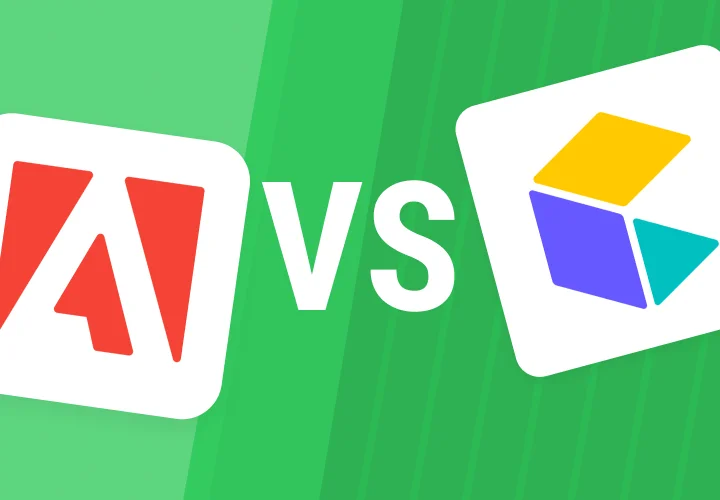Best E-Commerce Solutions in 2025
Table of contents
We're here to guide you through the best E-commerce software solutions for 2025, each backed by reliable sources, research, and expert analysis. Let's explore how these solutions can empower your business.
1. Shopify
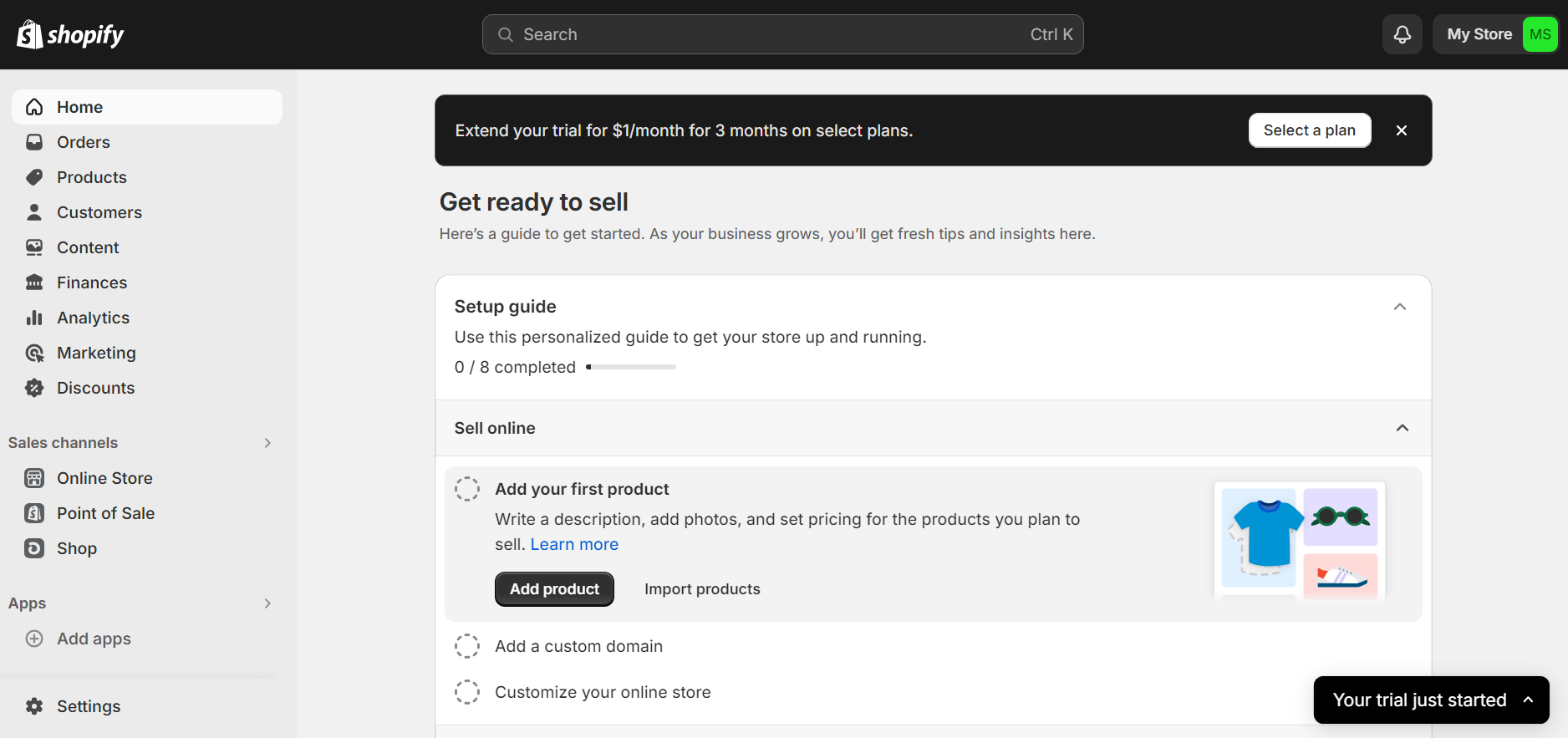
When it comes to top B2B E-commerce solutions, Shopify shines as one of the industry leaders. According to recent statistics published by Statista, Shopify's market share in the E-commerce platform market is around 10%. Its user-friendly interface and scalability have made it a preferred choice for businesses globally. Moreover, companies providing Shopify web development services enhance its appeal by delivering tailored solutions to create powerful, secure, and scalable online stores. Additionally, the E-commerce merchant software solutions offered by Shopify ensure secure transactions, protecting your customers' sensitive information.
2. Adobe Commerce (Magento)

As a testament to its effectiveness, Magento remains a powerhouse in the world of E-commerce. According to Gartner's Magic Quadrant for Digital Commerce, Magento has consistently been recognized as a leader in digital commerce platforms. Its flexibility and customization options are particularly beneficial for businesses aiming to deliver tailored experiences.
If you’re thinking of establishing your online store on Magento as well, contact the Emerline experts that have been helping businesses for over 12 years in the E-commerce industry.
3. WooCommerce
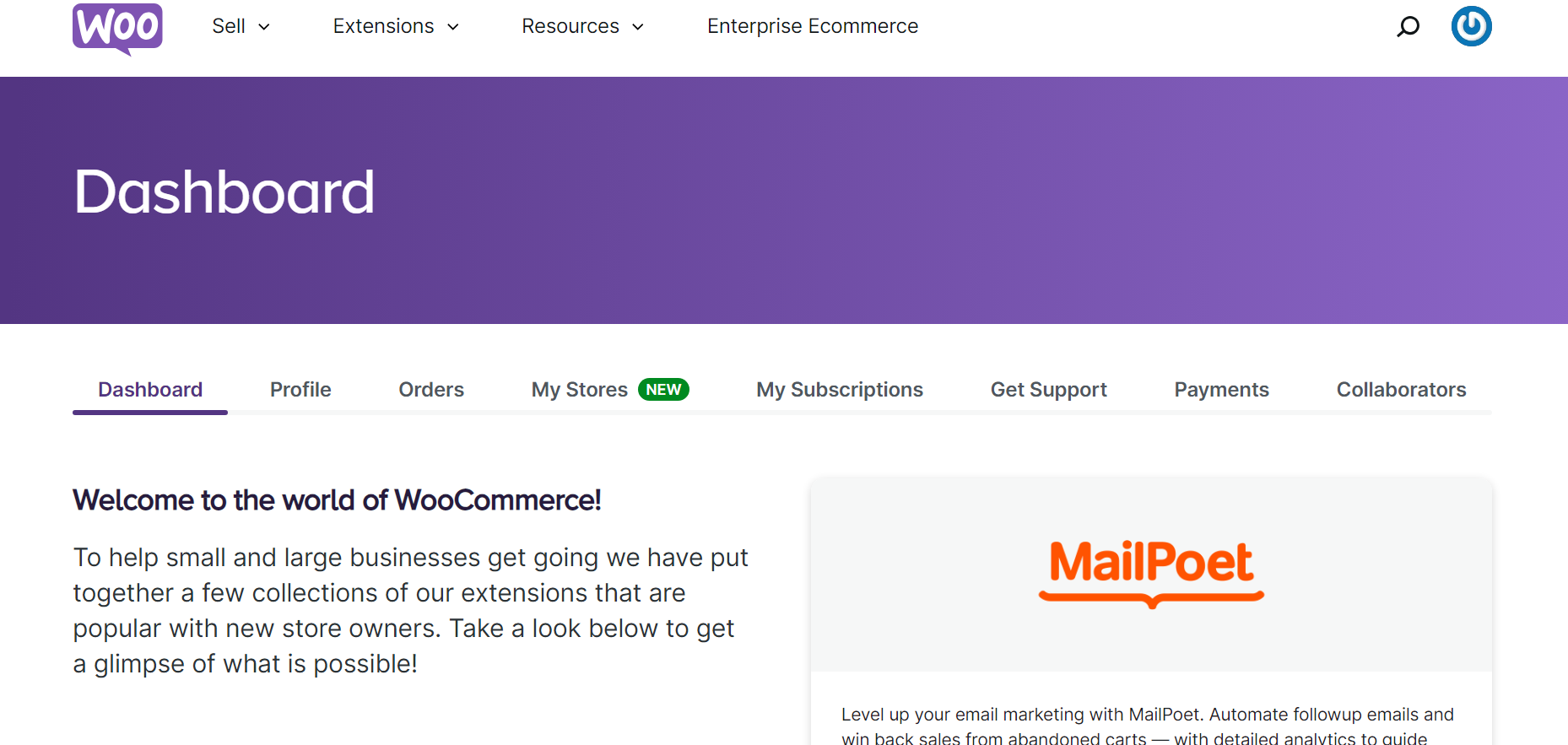
Over the past few years the E-commerce world has undergone massive changes but one player remained steadfast, showcasing unyielding growth. WooCommerce has emerged as the industry leader in the E-commerce market, having overtaken its competitors. There are a number of reasons for its growing popularity but according to CloudWays, it’s because of the fact that WooCommerce is a simple, free-to-use plugin for WordPress – the most popular CMS in the digital world today. This E-commerce solution is an excellent example of E-commerce solution software that seamlessly merges with existing websites.
4. BigCommerce
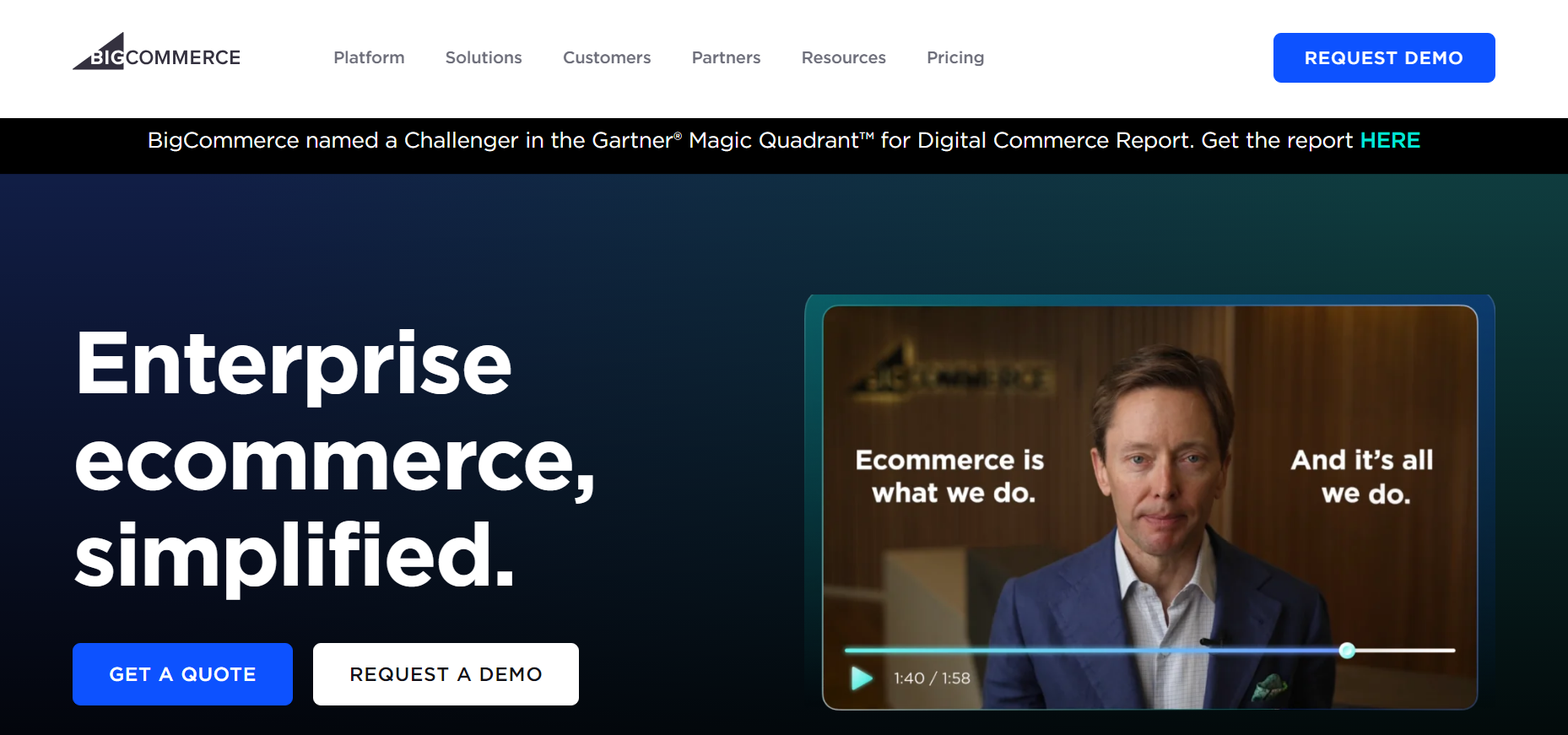
BigCommerce stands out as an exceptional E-commerce software solution, offering an extensive array of tools that span from robust marketing functionalities to in-depth analytics. Its high-caliber design options ensure that businesses can tailor their online presence to reflect their brand's essence. To unlock even greater customization and scalability, companies can use development services from companies that specialize in BigCommerce development, and thus creating unique online stores tailored to their specific needs. Notably, BigCommerce bridges the gap between the advantages of a SaaS platform and the flexibility inherent in an open-source platform. This unique fusion empowers businesses to cater to diverse needs, whether they seek a streamlined experience or wish to exercise more control over their E-commerce environment. Its exceptional customer service and AI chatbots in particular have contributed to its growth.
5. SAP Commerce Cloud
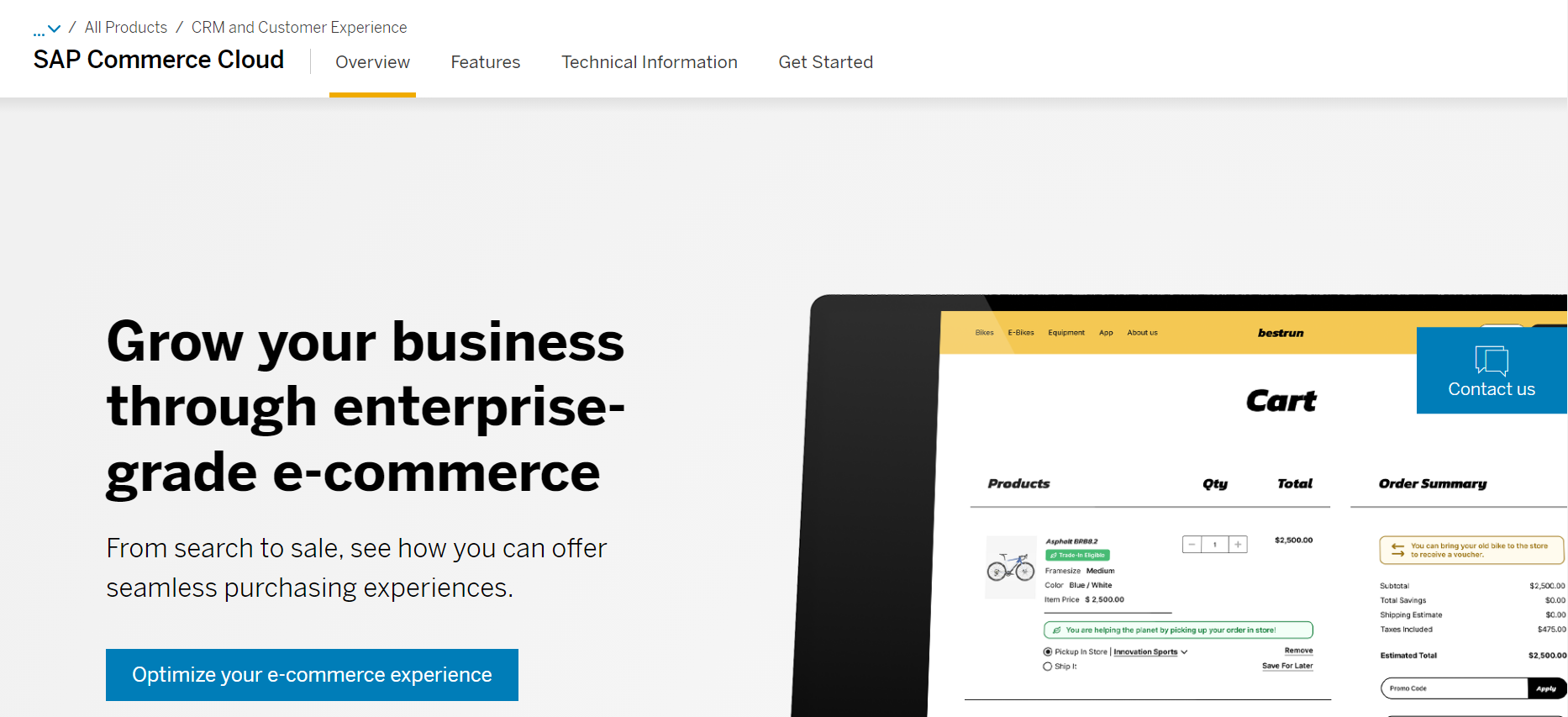
SAP Commerce Cloud's proficiency in handling complex B2B operations is widely recognized, making it one of the prominent E-commerce software solutions today. Notably, the platform's adeptness extends to the realm of headless commerce, offering businesses a flexible approach to content delivery and customer experiences. The platform’s prowess lies in navigating intricate B2B landscapes and driving substantial growth and amplifying revenue.
6. Salesforce Commerce Cloud
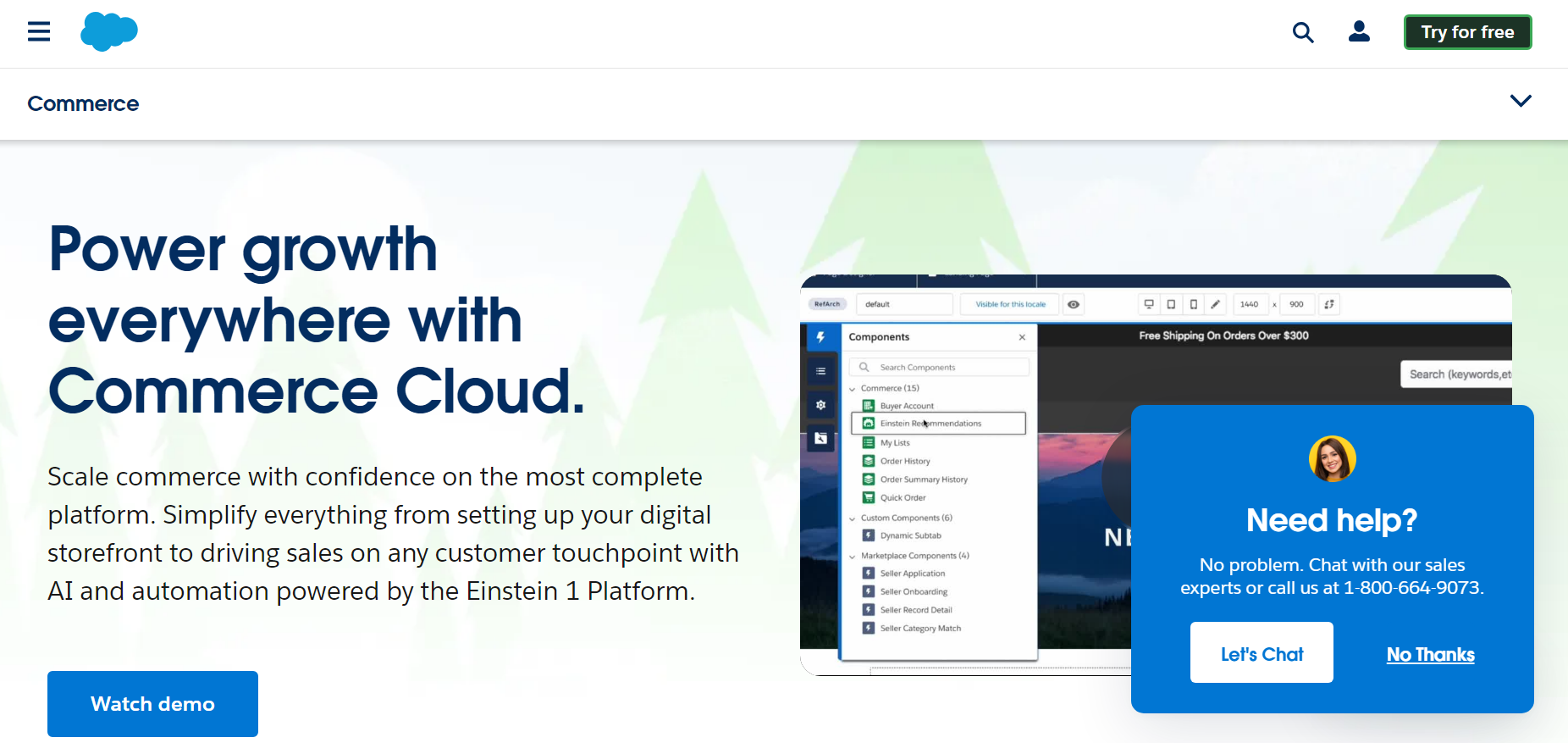
The importance of moving to the cloud for seamless business operations cannot be overstated. As we navigate the era of omnichannel experiences, Salesforce Commerce Cloud emerges as a game-changing solution. With its AI-driven capabilities, businesses can provide tailored experiences across diverse touchpoints, ensuring a cohesive and personalized journey for customers. According to Salesforce, 66% of customers expect brands to understand their unique needs and preferences and offer personalized solutions. These expectations perfectly align with the transformative capabilities that Salesforce Commerce Cloud brings to the table, enabling businesses to meet the demands of the modern digital landscape.
7. commercetools
Commercetools is a headless E-commerce platform providing businesses with unparalleled flexibility and scalability. Its API-first approach enables seamless integrations with various third-party systems while empowering merchants to create personalized shopping experiences across multiple channels. Commercetools' core features include robust inventory management and tools for effortless customization of storefronts. By embracing microservices architecture, commercetools offers businesses the agility to innovate and adapt quickly in a competitive E-commerce landscape.
8. Oracle Commerce Cloud
Complex B2B scenarios demand a level of sophistication that only the right E-commerce software solutions can provide. Oracle Commerce emerges as a robust contender in this domain, offering capabilities that align perfectly with the intricate demands of modern B2B operations. Oracle Commerce's effectiveness lies in its ability to seamlessly navigate complex supply chains and deliver personalized catalogs that cater to the unique needs of each business customer.
9. GoDaddy Website Builder
In a digital world where first impressions matter, GoDaddy Website Builder emerges as the ultimate tool to effortlessly create a captivating online identity. With its user-friendly drag-and-drop interface, customizable templates, and dynamic features, GoDaddy empowers businesses and individuals to craft professional E-commerce websites that resonate with their audience. From optimized mobile responsiveness to built-in SEO tools, every element is designed to ensure a seamless and engaging user experience.
10. SquareOnline
Incorporating online and offline sales channels can be a game-changer for businesses, allowing them to tap into a broader customer base. Square Online, an all-encompassing E-commerce software solution, streamlines this process, making it easy for businesses to transition into the digital marketplace while seamlessly connecting with their brick-and-mortar operations. This integration not only empowers businesses to expand their online presence but also caters to the evolving shopping behaviors of modern consumers, who often seek a combination of digital convenience and physical engagement. According to Forbes, this is what makes Square a favorite among small businesses.
11. Wix eCommerce
Providing an intuitive interface, Wix eCommerce empowers small to medium-sized businesses to establish a strong online presence. Its user-friendly tools and seamless design capabilities enable businesses to create engaging online stores that resonate with their audience. The high satisfaction rate reported by Wix customers further exemplifies its accessibility and professionalism, reflecting the platform's ability to deliver effective E-commerce solutions. As businesses navigate the complexities of the digital landscape, Wix eCommerce stands as a valuable resource that enables growth and success through its user-centric approach.
Starting an E-commerce Business
Starting an E-commerce business is an exciting venture that holds tremendous potential in today's digital age. With the widespread accessibility of the internet and changing consumer preferences, the online marketplace offers a lucrative platform to showcase and sell your products or services.
It involves pinpointing your niche and audience, creating a user-friendly website, devising a potent marketing strategy, ensuring customer trust through secure transactions and transparent policies, and adapting through continuous analysis.
But the importance of choosing the right tools cannot be overstated. E-commerce success heavily relies on tools like the chosen E-commerce platform, digital marketing tools, analytics software, and customer service systems. These tools streamline processes, enhance efficiency, and enable you to make data-driven decisions.
Picking tools that align with your business needs and goals is crucial for maximizing productivity and providing an exceptional customer experience. A well-chosen toolset can significantly impact your ability to scale, adapt, and stay ahead in the competitive E-commerce landscape.
Conclusion
Selecting the right E-commerce software solution is a pivotal decision for businesses seeking to thrive online. Each of the solutions discussed in this article is supported by trustworthy sources, research, and expert opinions.
Whether you're a startup, a well-established enterprise, or a B2B operation, these E-commerce solutions can empower your business to enhance customer experiences, streamline operations, and drive growth.
As you embark on this digital journey, remember that expert guidance, like that offered by Emerline in the realm of E-commerce, can play a crucial role in ensuring your success.
Emerline offers comprehensive services on E-commerce platforms. If you're looking for expert assistance in setting up your online business, don't hesitate to reach out.
Updated on Jan 9, 2025


